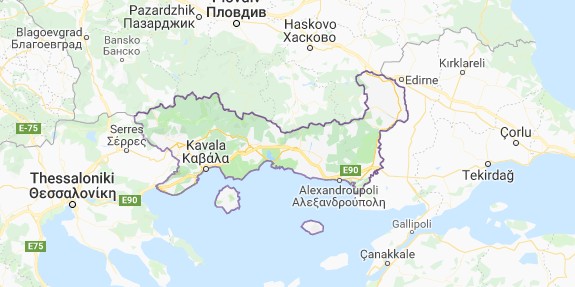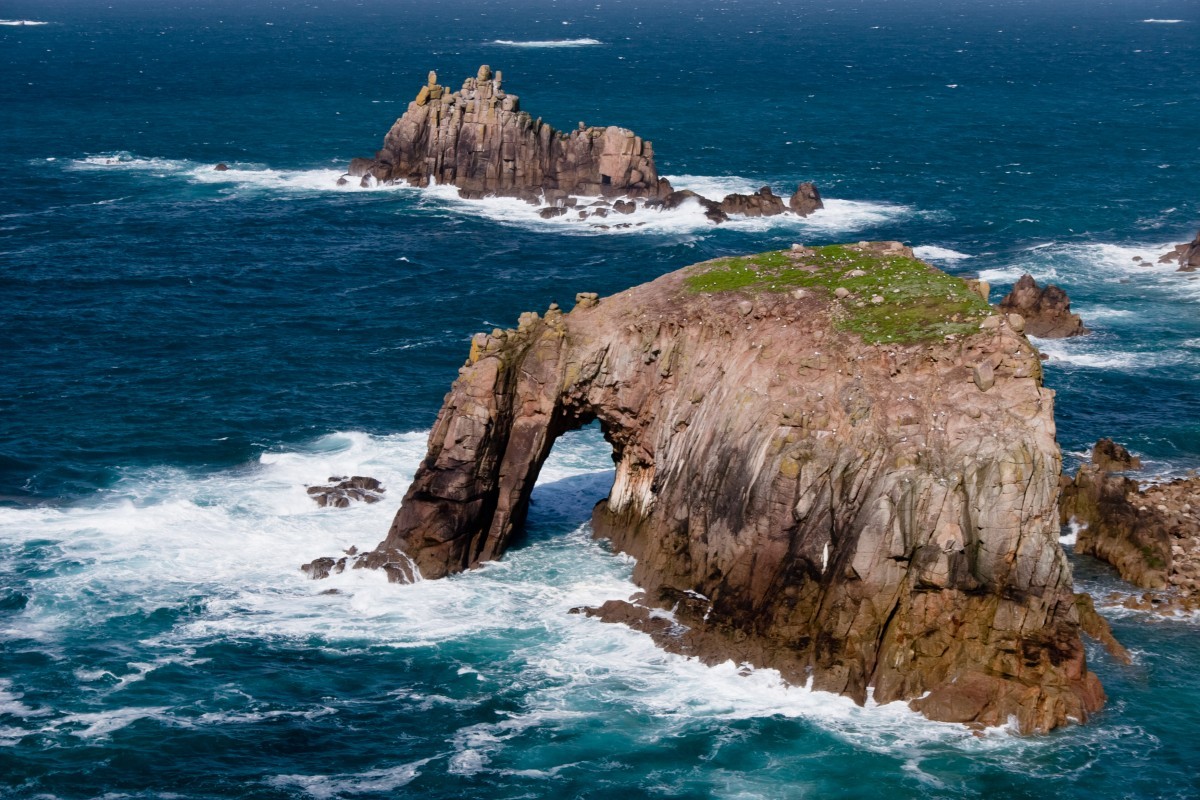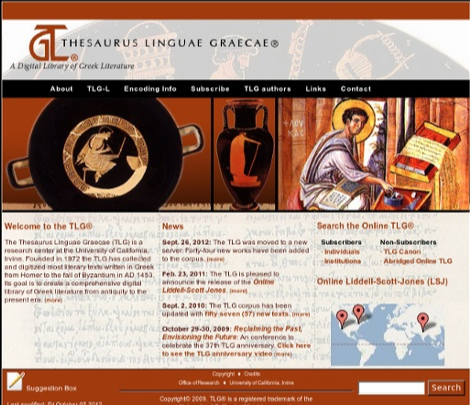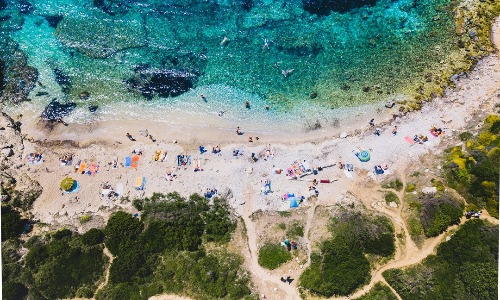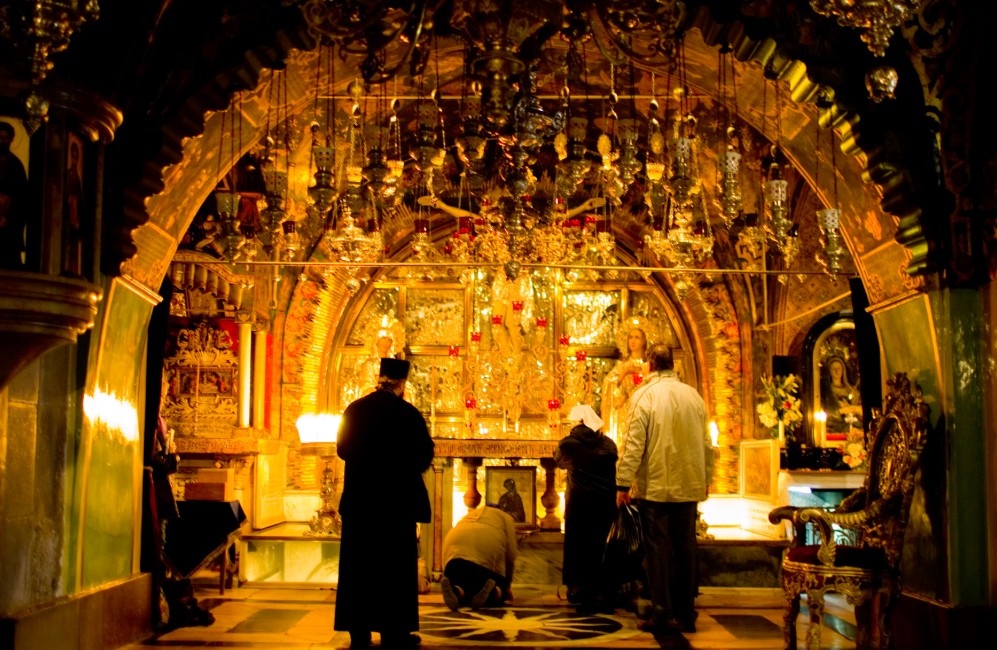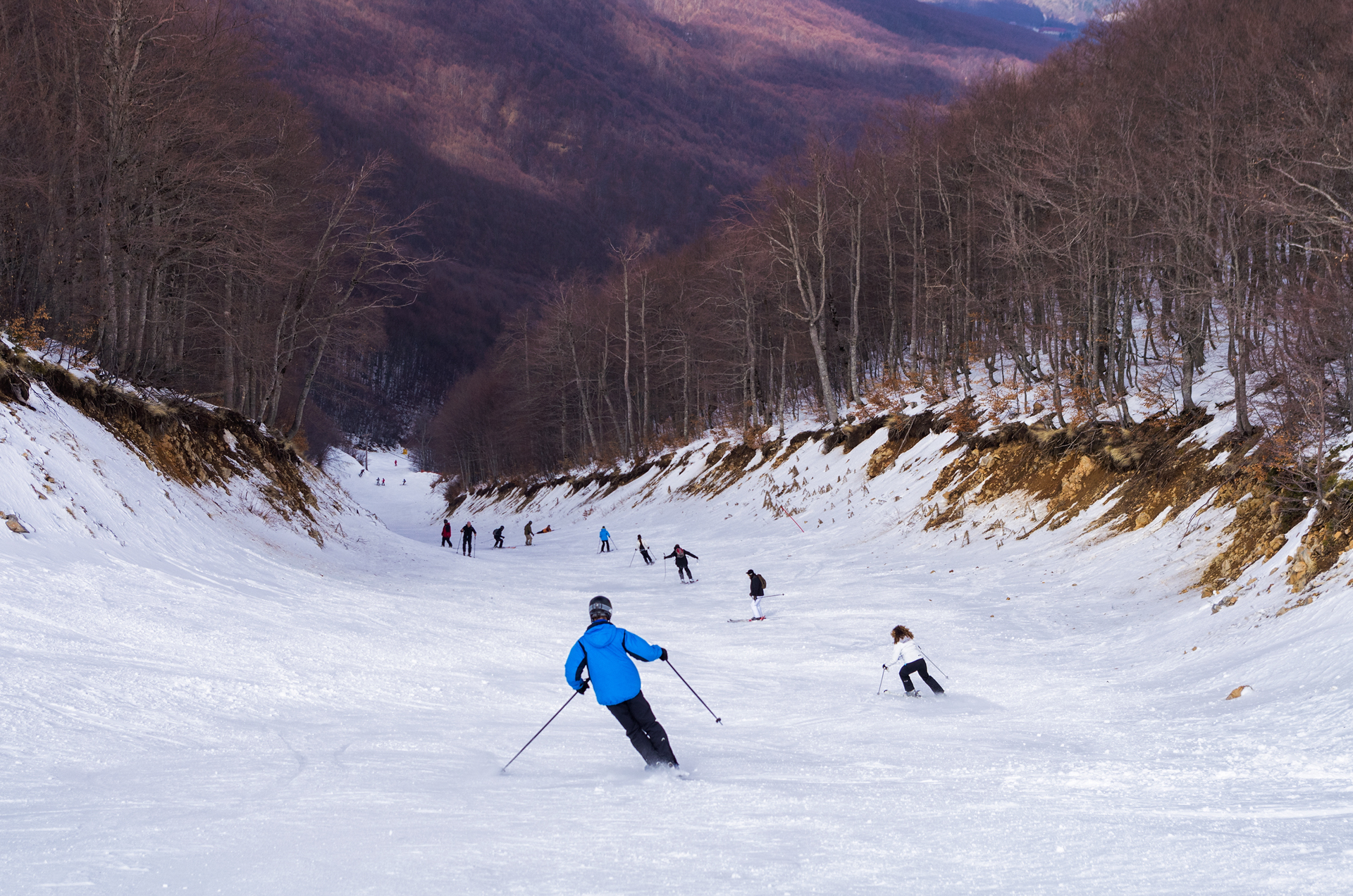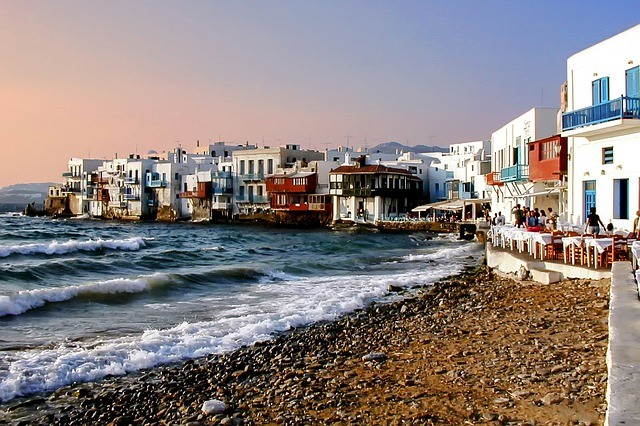Greek art spans a wide variety of disciplines, from painting, ceramics, dance and music to literature.
Paintings: The earliest paintings identified to originate in Greece are the decorations on earthenware pots. Frescoes discovered on Santorini, depict men and women often in profile, along with plants and animals. These frescoes date from the Minion period, and are now one of the star attractions in the National Archaeological Museum in Athens . During the Byzantine period, art in Greece became more widespread, mainly in churches. Frescoes depicting Christ, the Virgin Mary and the saints adorned the central areas of the churches. In later years, they became more communicative, relating to the life of Christ and the Virgin Mary. In the 19 th century, artists began to paint portraits and naval themes, recounting the War of Independence. Prominent artists in the early 20 th century, Parthenis, Kaleas and later George Bouzianis studied these early works of art and progressed and developed it into the contemporary art of Greece today, many of these artists works are on exhibition in the National Art Gallery in Athens.

Sculptures: Sculptures from ancient Greece are major attractions in many museums around the world. Sculptors were fortunate to have a supply of good quality marble to work with, they became adept at carving the human body, usually naked young men, and the most famous of Greek statues is the 4 th century BC statue of Venus de Milo, discovered on the island of Milos in 1820, now on display in Paris .

Literature: When one thinks of Greek literature, one thinks of Homer, the author of the Iliad and Odyssey. The life of Homer remains a mystery, no one is sure where he was born or where he lived, thought to have lived in the 9 th century BC, but no proof as of yet can confirm this.
Other great writers include, Pindar (c. 518-438 BC) one of the most well renown poets of ancient Greece . Sappho (6 th century BC), from the island of Lesvos ( Lesbos ), whose poems told of the love and affection between women.
Dionysos Solomos (1798-1857), from the island of Zakynthos regarded as one of the first modern day poets, his poem “Hymn to Freedom” became the national anthem of Greece . The recipient of the 1963 Nobel Prize for literature, George Serferis (1900-1971), along with the 1979 recipient of the Nobel Prize for literature, Odysseus Elytis (1911-1996), are well known for their poetry.

Nikos Kazantzakis (1883-1957), perhaps the most well known of modern day writers in Greece , he was very controversial, and still is, with his views on the clergy of the Greek Orthodox faith. Two of Kazantzakis greatest works are Zorba the Greek and Christ Recrucified. Another Greek writer also controversial is, Nikos Dimou with his book “The Misery of Being Greek”, which relates to the observations of Greek society.
Greek Music, Dance & Theater

Music: When you think of Greek music, all that comes to mind is Mikis Theodorakis’ soundtrack to the film Zorba the Greek and the ever present sound of the bouzouki (mandolin). Also due to the fact, that many of the restaurants catering to the tourist play this popular type of music. Greek music is as varied as its regions and islands, from ethnic music to modern techno/pop.
The bouzouki is one of the main instruments played in the “rembetika” style of music; rembetika is the Greek equivalent of the American blues music. This style of music has its roots in the less than salubrious cafes called “tekedes”, here the clientele often poor workers, gathered together and smoked hash, the lyrics of the rembetika were often about prison, fighting, hash smoking and the hard life they endured.
After General Metaxas in 1936 decided, enforce censorship and imprison those who did not agree with him, the music of the tekedes all but disappeared. During the 1950s and 60s the music became popular again, but in a more sanitised version, today old style rembetika music is once again becoming popular.
Other song forms are the “dimotika” and “elafrolaika”, dimotika is poetry sung accompanied by musical instruments, and elafrolaika is popular middle of the road music. The songs sung in the Epiros region, called “pogonisia” are of Byzantine origin. Another popular music form is “skyladika” or dog songs, the name derives from the sound, it is supposed to sound like a dogs whining! A few Greek performers have made it onto the international scene, Nana Mouskouri, Demis Roussos, Mikis Theodorakis and Yanni.
In classical music, Maria Callas was perhaps the best known; the soprano opera singer Elena Kelessidi is famous in the classic music world. Music for the younger generation is much like that of any other country rock, techno, etc; there are some good local rock bands, but they prefer to sing in English rather than their native tongue, like most bands they are looking for international fame.
Dance: the Greeks love to dance, whether it is at a wedding or in the local café. Each region has its own local dance. The “sirtaki” dance featured in the film Zorba the Greek is perhaps the most well known, The “kalamatiano” dance is a graceful dance originally from the Peloponnese region, is performed in a circle with the participants holding on to each others shoulders. The “sirtos” dance is from the islands also performed in a circle, many of the dances have their roots in ancient history. The male Greeks often dance the “zeimbekiko” this dance which the males perform alone is spectacular, with its many improvisations its roots are from the tekedes bars and prisons of the 1930s. The women have their own variation of this dance, the “tsifteteli” which is a sensuous, intense dance evolved from Turkish belly dancing.
Theatre: performances at the Theatre of Dionysos in Athens date from the 6 th century BC. These were more of a competition, the Thespis came on to the stage and gave a solo performance, (From Thespis comes Thespian=Actor). The father of tragedy, Aeschylus (c 524-456 BC) known for his Oresteia trilogy, Sophocles (c 496-406 BC) was one of the most prolific writers of the time, only a few of his plays remain today, with Oedipus Rex the most famous. Euripides (c 485-406 BC) was also a popular writer, many people preferred his dramas because they were more exciting, the most famous being Andromache, Orestes and Bacchae. Possibly one of the first comedy playwrights was, Aristophanes (c 427-387 BC) his works made fun of the Athenian society and their gullibility. Modern day Greek theatre has many good directors and playwrights, however many of their works are only in the Greek language.

